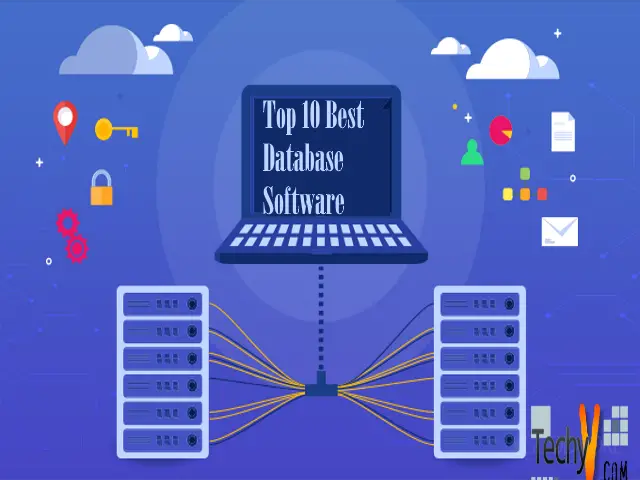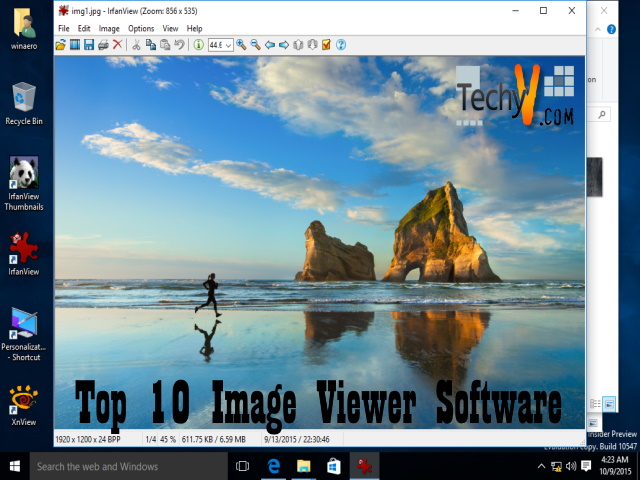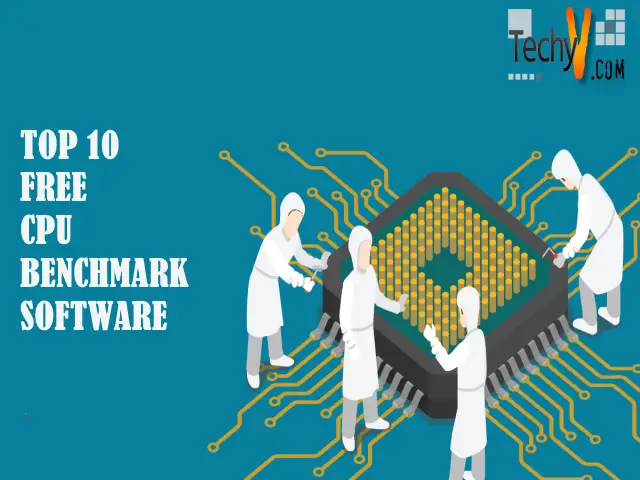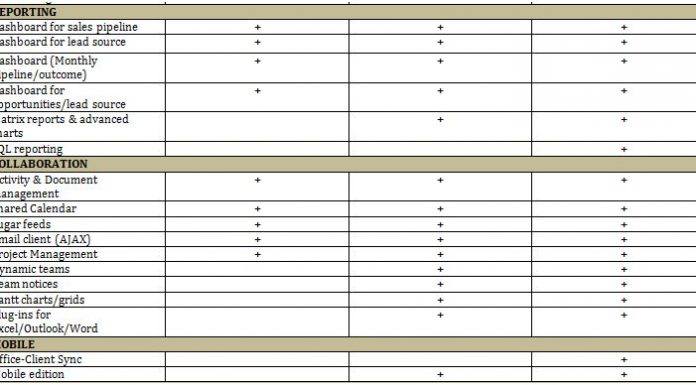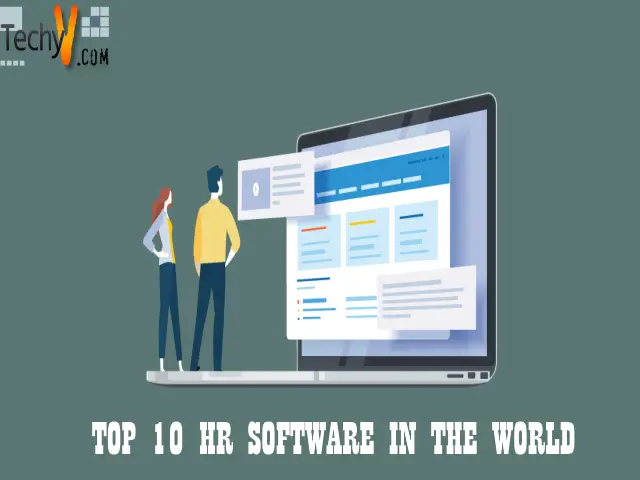Databases store data for further processing & longevity. Applications and websites use databases to store all the information they collect. Databases can be manipulated with queries to get the desired result. Here, let’s discuss the top 10 best database software.
1. Microsoft SQL Server Microsoft SQL Server is a database software developed by Microsoft Corporation in 1989. The features provided are innovation faster-on premises, acceleration of the move to cloud, building intelligent apps, fully manageable, always up-to-date, lowest total cost ownership, 24/7 support, built-in intelligent security, competitive pricing, multilingual, multiple device compatibility, and unique offers.
2. MongoDB

MongoDB is a software developed by MongoDB Inc. in 2009. The benefits provided are rich JSON documents, powerful query language, all the power of a relational database, support for joins in queries, fully automated, global clusters, backup, monitoring & alerts, serverless triggers, best-in-class security, charts, BI connector, compass, manipulation of data, and leverage the BI tools.
3. MySQL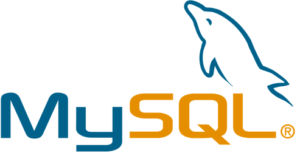 MySQL is a software developed by Oracle Corporation in 1995. The features provided are open-source, fully-managed database service, instant provisioning, latest updates, data protection, regulatory compliance, security updates, managed & developed by MySQL team, compatibility with on-premises MySQL deployments, integration with Oracle technologies, and improved security.
MySQL is a software developed by Oracle Corporation in 1995. The features provided are open-source, fully-managed database service, instant provisioning, latest updates, data protection, regulatory compliance, security updates, managed & developed by MySQL team, compatibility with on-premises MySQL deployments, integration with Oracle technologies, and improved security.
4. SQLite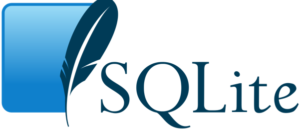 SQLite is a database software developed by D. Richard Hipp in 2000. The benefits offered are transactions, zero-configuration, full-featured SQL, single cross-platform disk file, common table expressions, window functions, small code footprint, API, faster than direct file system I/O, TCL bindings, 100% branch test coverage, self-contained, public domain, command-line interface, website database, and multilingual.
SQLite is a database software developed by D. Richard Hipp in 2000. The benefits offered are transactions, zero-configuration, full-featured SQL, single cross-platform disk file, common table expressions, window functions, small code footprint, API, faster than direct file system I/O, TCL bindings, 100% branch test coverage, self-contained, public domain, command-line interface, website database, and multilingual.
5. Amazon RDS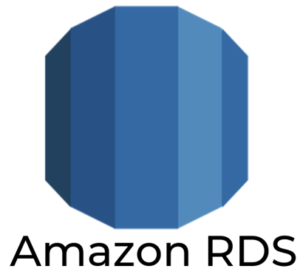 Amazon RDS is a software developed by Amazon in 2009. The features provided are a lower administrative burden, performance, scalability, availability, durability, security, easy to use, manageability, cost-effectiveness, automatic software patching, best practice recommendations, general-purpose storage, push-button compute scaling, easy storage scaling, read replicas, automated backups, database snapshots, automatic host deployment, and network isolation.
Amazon RDS is a software developed by Amazon in 2009. The features provided are a lower administrative burden, performance, scalability, availability, durability, security, easy to use, manageability, cost-effectiveness, automatic software patching, best practice recommendations, general-purpose storage, push-button compute scaling, easy storage scaling, read replicas, automated backups, database snapshots, automatic host deployment, and network isolation.
6. Microsoft Access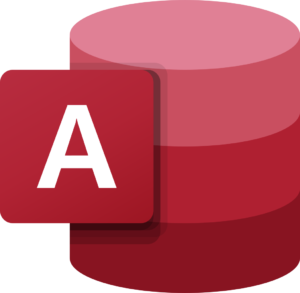 Microsoft Access is a database software developed by Microsoft Corporation in 1992. The benefits offered are the creation & sharing of apps, customization of applications to grow businesses, integration with multiple data sources, the addition of tables with fewer clicks, integration with other Microsoft products, ideal for teams, client-server database, ready templates, user-friendly interface, hide/show option for Ribbon, custom solutions using VBA code, and multilingual.
Microsoft Access is a database software developed by Microsoft Corporation in 1992. The benefits offered are the creation & sharing of apps, customization of applications to grow businesses, integration with multiple data sources, the addition of tables with fewer clicks, integration with other Microsoft products, ideal for teams, client-server database, ready templates, user-friendly interface, hide/show option for Ribbon, custom solutions using VBA code, and multilingual.
7. Teradata Teradata is a software developed by a company of the same name in 1979. The features provided are unlimited parallelism, shared-nothing architecture, linear scalability, connectivity, mature optimizer, SQL, robust utilities, automatic distribution, integrations with other companies, multilingual, multiple device support, and priority customer support.
Teradata is a software developed by a company of the same name in 1979. The features provided are unlimited parallelism, shared-nothing architecture, linear scalability, connectivity, mature optimizer, SQL, robust utilities, automatic distribution, integrations with other companies, multilingual, multiple device support, and priority customer support.
8. CouchDB CouchDB is a database software developed by Apache Software Foundation in 2005. The benefits offered are single-node database, cluster, HTTP/JSON, offline first data sync, ecosystem, reliability, easy replication, fast indexing & retrieval, REST-like interface, JSON-based document, multiple libraries, subscribable data updates, multilingual, and integrations.
CouchDB is a database software developed by Apache Software Foundation in 2005. The benefits offered are single-node database, cluster, HTTP/JSON, offline first data sync, ecosystem, reliability, easy replication, fast indexing & retrieval, REST-like interface, JSON-based document, multiple libraries, subscribable data updates, multilingual, and integrations.
9. Oracle RDBMS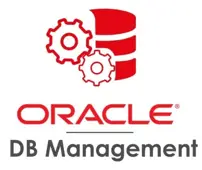 Oracle RDBMS is a software developed by Oracle Corporation. The features provided are application development, availability, business intelligence, clustering, content management, database overall, database security, grid computing, grid management, information integration, location services, performance & scalability, server manageability, and workspace manager.
Oracle RDBMS is a software developed by Oracle Corporation. The features provided are application development, availability, business intelligence, clustering, content management, database overall, database security, grid computing, grid management, information integration, location services, performance & scalability, server manageability, and workspace manager.
10. MariaDB MariaDB is a database software developed by MariaDB Corporation AB. The benefits offered are a wide selection of storage engines, popular querying language, multilingual, multiple device support, customer support, runs on several OS, supports a wide variety of programming languages, Galera cluster technology, and supports PHP.
MariaDB is a database software developed by MariaDB Corporation AB. The benefits offered are a wide selection of storage engines, popular querying language, multilingual, multiple device support, customer support, runs on several OS, supports a wide variety of programming languages, Galera cluster technology, and supports PHP.


